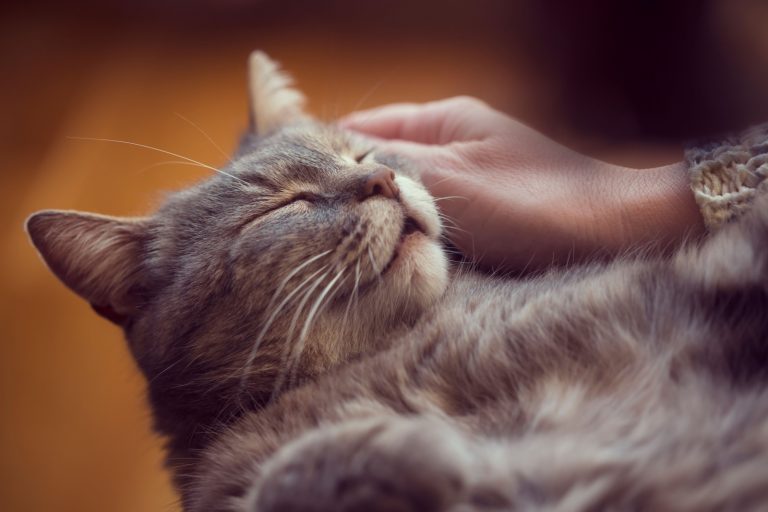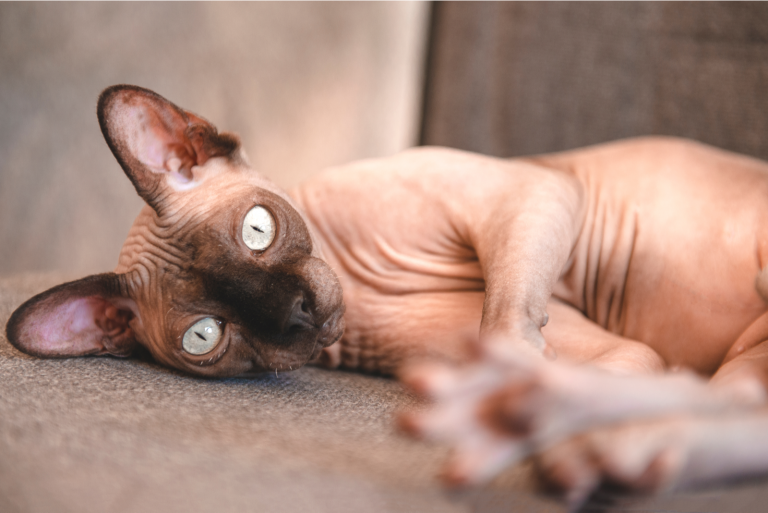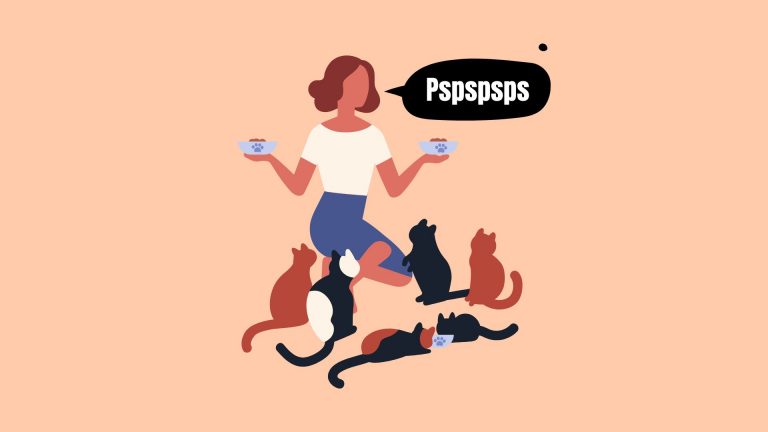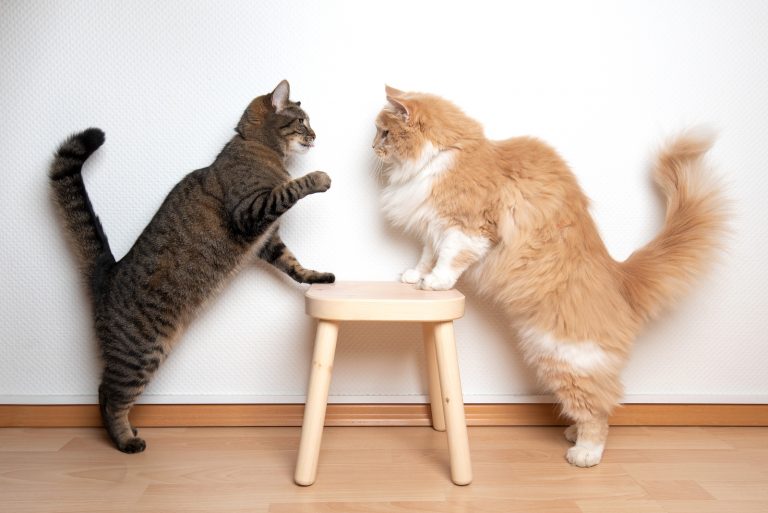Do Cats Forget Their Owners? Here’s The Answer!
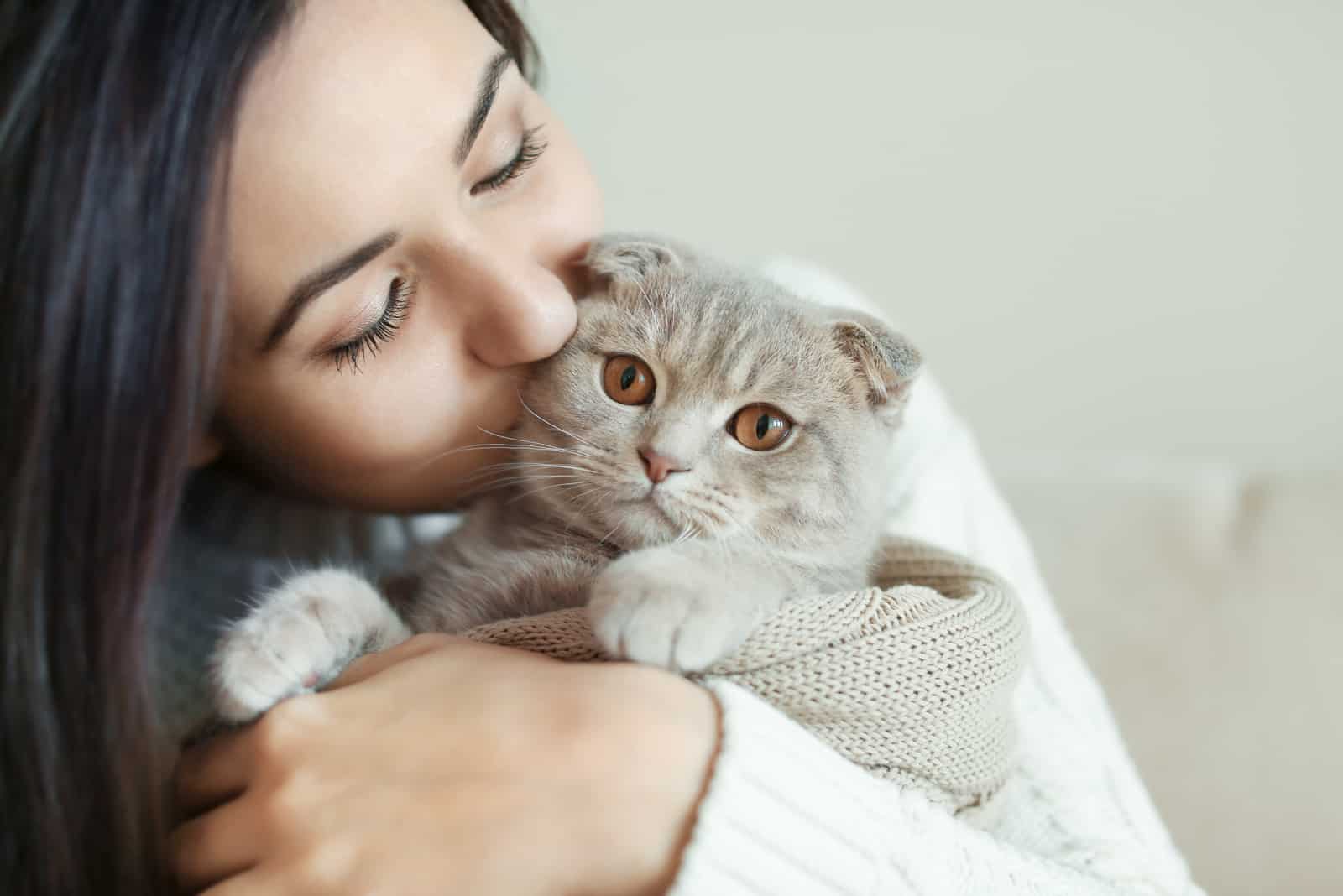
A lot of people wonder do cats forget their owners after a certain period of time. This question usually pops up when adult cats decide to ignore their humans for an extended period of time.
Before we start, we should learn about how cats identify their owners.
You may think that cats would use their sense of smell, like dogs do, to identify and recognise people. However, this is a common misconception.
Family cats recognize their owners almost always by voice. If cat owners make an unusual noise, cats might get nervous or even frightened, before sensing your smell.
Of course, smell is also important, and lots of time cats use scent or smell to help them recognize their owners. Their strong sense of smell enables them to distinguish between enemies, friends, and strangers.
This is why your cat may smell you carefully each time you come home after a long period of time. They are assessing any unfamiliar smells you have brought home.
If you want to learn more, then let’s find out more about how your cat’s memory works!
Do Cats Forget Their Owners?
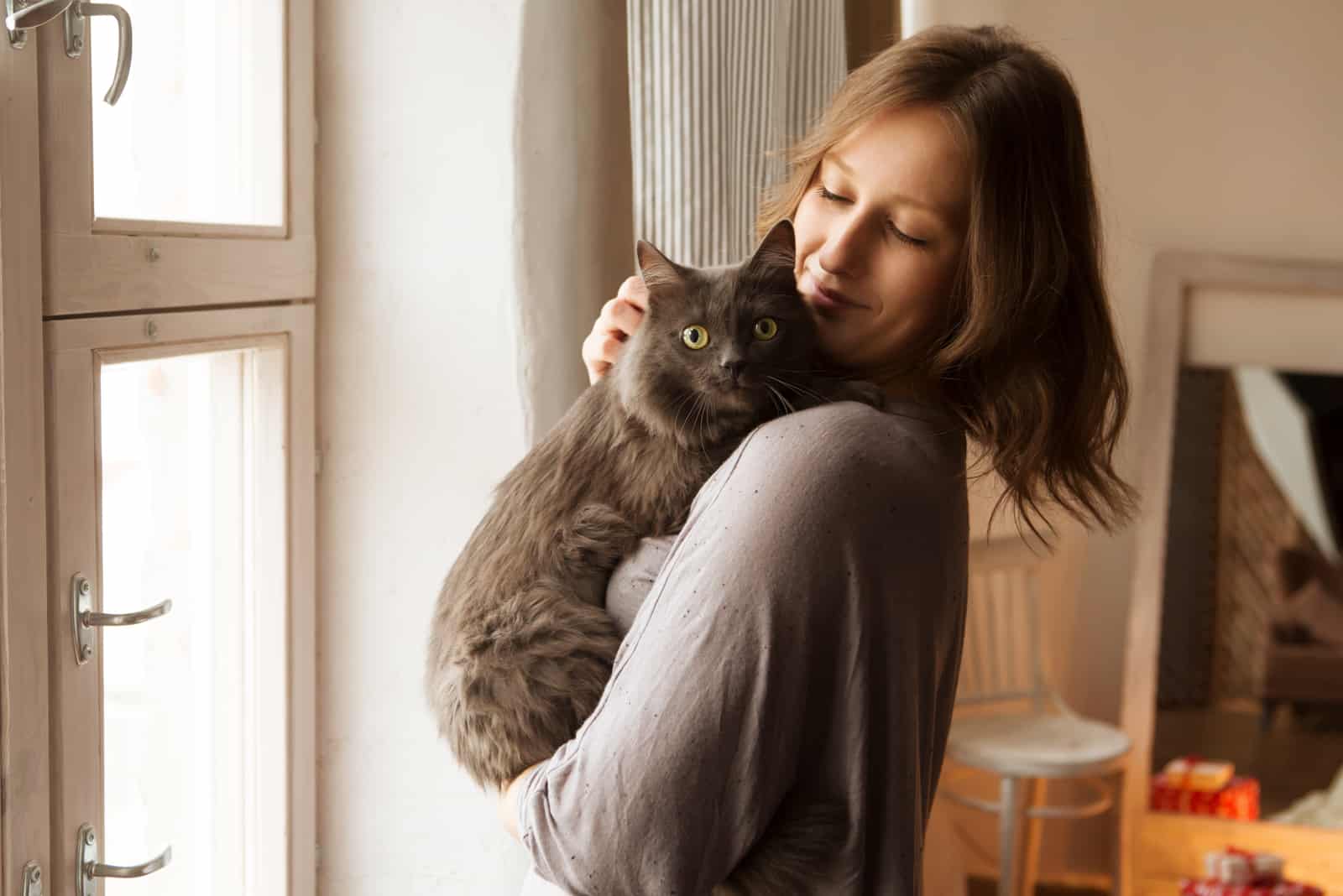
You have probably come home from work to find your cat meowing, purring, sprawling with joy on the floor, and rolling around on its belly.
Does it do that because it missed you or is there another reason behind this affectionate behavior?
British behaviorists have conducted a series of experiments on cat’s behavior and concluded that cats do not miss their owners as such, but their environment was boring without their human companions so they are glad to have company.
Cats are animals of remarkable intelligence. They relate to us using all of their senses, creating an image of us and keeping us in their long-term memory.
Moreover, they are also routine animals. If something changes, including separation from a family member, they’ll notice it and it may frighten them.
Most animals modify their greeting behavior based on the situation, so they may act differently depending on how long you have been away for..
For example, new owners use “greeting sessions” which are so important for creating a strong bond with your new cat!
A Cat’s Memory
Older cats have a superior memory than kittens (and dogs as well). According to research, an adult cat has a memory of roughly 16 hours, which is similar to that of a three-year-old child.
Dogs, on the other hand, have only a five-minute memory span. Your cat isn’t only outperforming a dog in terms of memory… Cats even have better memories than chimpanzees and orangutans!
A cat’s brain is comparable in structure to a human brain, which may explain why cats are so good at remembering things like when it’s feeding time, how to unlock a door, or how to interact with you.
Experiments show that senior adult cats experience deterioration in memory. Older cats have slightly poorer memory, memory span, and greater memory loss than younger cats.
As with humans, various studies have shown that many cats’ cognitive capacity and therefore memory declines as they get older; a condition called feline cognitive dysfunction.
However, it’s very important to distinguish between the two different types of memory: short-term memory and long-term memory. The first one refers to information stored over a shorter period of time, while the other refers to information that is stored in the brain for a longer period of time.
Read on to find out more about these two types of memory and why they are important when it comes to your cat’s memory!
Short-Term Memory
As with other animals and humans, feline memory is located in part of the brain. A fun fact is that the cat’s brain accounts for less than 1% of its body weight.
When it comes to long-term memory and short-term memory, the deciding factor is the number of neurons present in it.
The cat’s brain has three hundred million neurons. Not sure what this means? To be able to make a comparison, dogs have only one hundred and sixty million neurons, so the biological ability of memory in cats is greater than that of dogs.
Studies have shown that cats’ short-term memory is around sixteen hours, which allows them to recall recent events. Moreover, they use this to remember only essential information that is important for their survival.
These memories influence the cat’s behavior. They’re able to recognize certain spaces, smells, sounds, which determine how they behave..
Long-Term Memory
Cats have exceptional long-term memories, but for events to be recorded in a cat’s long-term memory, they must be of crucial value to the cat.
They are able to remember the places, objects, certain people, routines, and both positive and negative experiences. Basically, long-term memory stores events that made a big impact or things that happen so often that they’re hard to forget.
Just as short-term memory may determine a cat’s behavior and its reactions,so can long-term memory. For example, a cat may have a hard time trusting people again if they were abused in the past.
On the other hand, cats will definitely remember their owners who take good care of them and who provide them with love and affection because they associate them with positive memory, meaning that you’re worth remembering!
Memory Loss
Now, some sad news. Unfortunately, cats can develop a condition known as Feline Cognitive Dysfunction (FCD) as they get older. This disorder impairs a cat’s memory in the same manner as Alzheimer’s disease impairs human memory.
Lack of self-grooming, lack of social interaction, and increased meowing are just some of the signs that your pet cat shows when suffering from this disorder.
As your cat ages, she will begin to lose brain cells, leading to loss of short-term memory and long-term memory.
If you want to improve your cat’s brain function, you should feed your feline top-quality cat food that contains omega-3 fatty acids and antioxidants, as they have been proven to help with memory.
Do Cats Remember Their Previous Owners?
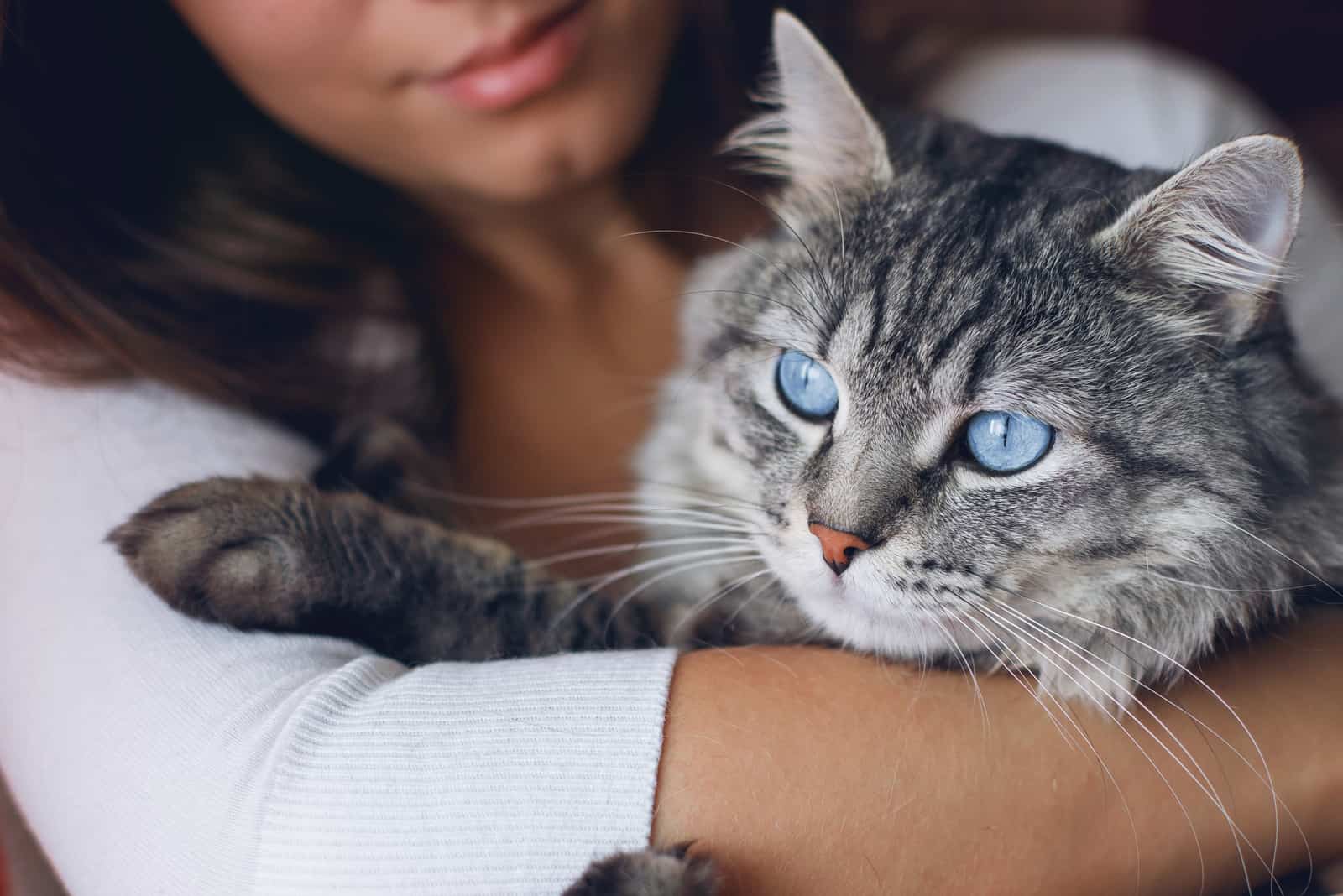
To address this topic, it is important to look at the cat’s instinct for survival and emotional associations. Humans play several important roles in a cat’s life – giving them shelter, attention, and cat food.
We contribute to their physical survival and mental well-being, so it is likely that cats remember people who were good to them in the past.
However, if cats spend a short period of time with someone and don’t form a strong bond with them, then there’s a distinct possibility that a cat will forget them in a meow!
Also, they can forget their cat friends and family too! Unless kitten siblings are raised together, they are unlikely to remember or recognize one another after separation.
Even a little absence might cause them to forget about each other. They are good companion animals, but they will not remember every companion they have ever had, especially as time passes and changes occur.
How Long Before Cats Forget Their Owners?
Cats who have been rehomed do frequently miss their previous owners and try to find their way back to them. If you’ve recently relocated or adopted a new cat, keep a close check on them for the first three weeks or so until they adjust to the new setup.
Do cats ultimately forget who they belong to?
Cats may recall a person’s face for up to ten years due to their enhanced long-term memory span. Because of their associative memory, it is critical to avoid negative experiences with your cats in order for them to remember you positively.
How Long Does It Take For A Cat To Accept A New Owner?
The time needed for a cat to accept the new owner will depend on several factors. First of all, it depends on its relationship with its previous owner.
If a cat was neglected, or even abused, by its previous owner, they may have a hard time trusting people again.
Another factor is how much effort the new owner makes. How the owner treats a cat is very important. If a cat has a hard time trusting you, you need to be patient, take good care of them, and stick to their routine.
Try rewarding their good behavior, and don’t forget about playtime! Eventually, your cat will understand that you care for them and they may start being more affectionate towards you.
How quickly a cat accepts its new owner may also depend on the cat’s age. So, older cats may have a harder time accepting change than younger cats, as they’ve become so used to the previous owner and their environment.
In addition, if a new cat enters an environment where there are other pets, they may not get along at first.
In this case, it’s very important to provide the new feline with her own space in order to avoid possible problems between the pets. Only allow them to sniff each other under your supervision in the beginning.
Most importantly, provide each pet with their own food and water bowls, litter box, cat bed, toys, and other belongings.
Problems may arise if a cat starts to crave its old home and previous owner.
Some cats may have a special homing instinct that enables them to find the way to their old home. Unfortunately, many lost cats don’t succeed in returning home, ending up lost, trapped, or even injured.
All in all, when it comes to the new setup, the only solution is to have enough patience and to provide your new feline friend with a lot of love and affection, and give her time to accept everything. Eventually, they’ll be more than thankful to you!
Do Cats Mark Humans To Remember Them?
Your cat will continually leave its imprint on you. We can consider this the furry version of a to-do list. Your scent shows that you are the source of food or playfulness.
When you chat with your cat, that is when they’re a hundred percent sure that it is actually you – their human friend! Your cat may start rubbing against everything, including you, as a sign of love and affection.
Cats mark their humans mostly because they’re aware that other cats and pets use smell to help them recognize you. Therefore, rubbing is your cat’s method of claiming you and alerting other cats to keep their paws away.
Does Your Cat Miss You When You Are Gone?
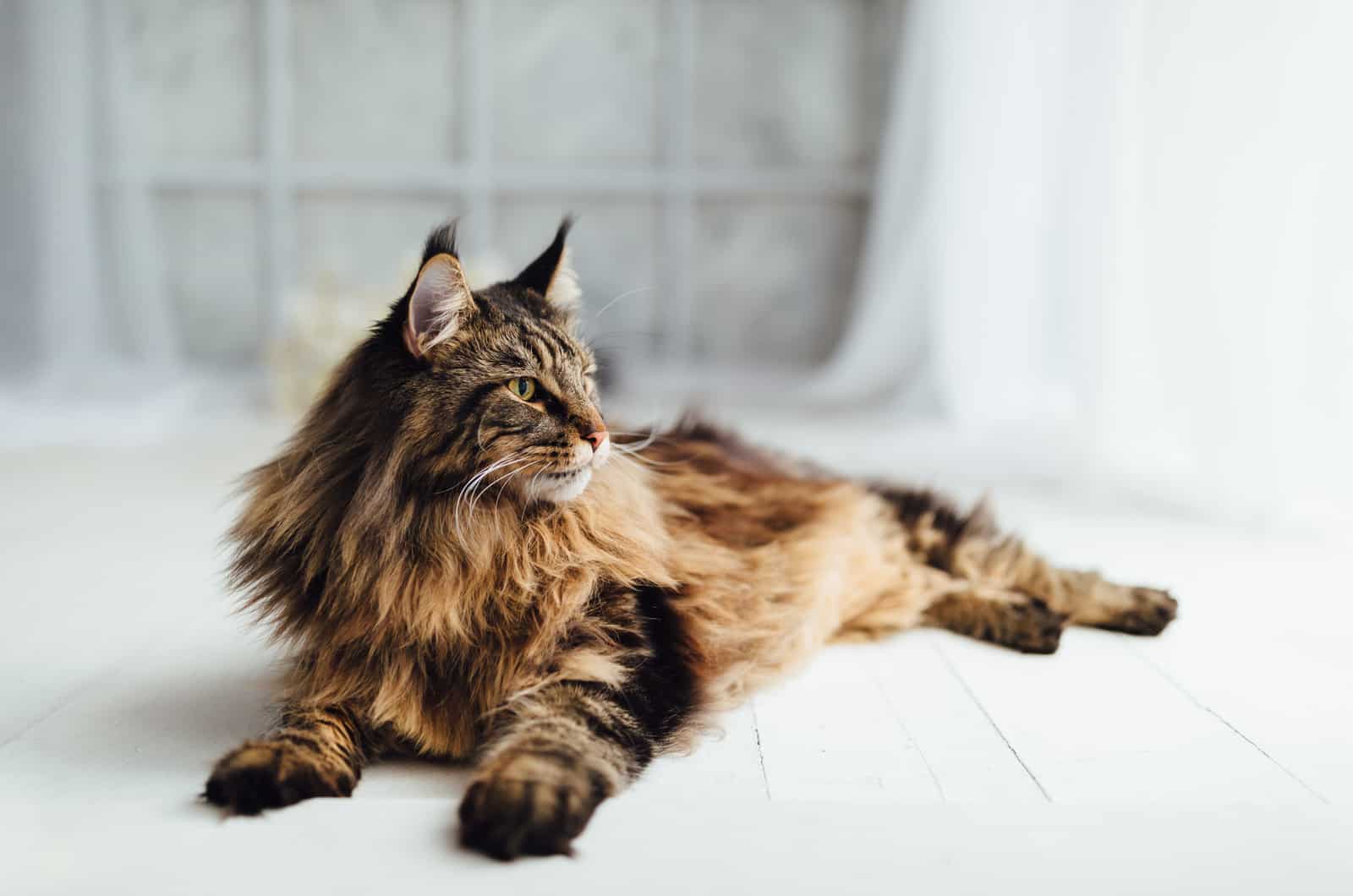
According to studies, many cats do not experience separation anxiety when their owners are away. Some cat owners have experienced this: you return after a vacation, but your cat is unfazed!
However, many cats are overjoyed when their owners return home. They meow, flop on their back, and start purring on your lap. Some cats may follow their owners everywhere around the house, not letting you out of their sight again!
This makes sense. Despite being solitary hunters at first, cats have learned to live in groups as a result of human culture and domestication. As a result, many cats are highly sociable and devoted to their owners.
Holding Grudges
Every cat has a unique way of showing their current mood. So, do cats hold grudges? Keep on reading and you will find your answer.
As with many cat-related questions, this topic is highly debatable!. However, it seems like the answer may depend on the age of the cat.
For example, kittens are infamous for their lack of long-term memory but they do have good short term memory. As a result of this, kittens probably don’t hold grudges because they simply can’t remember it.
How Long Can A Cat Stay Angry?
A cat staying angry for a long period of time doesn’t seem likely, but even though cats are one of the most loving pets, they are also one of the most unpredictable.
A cat can be playing and purring in your arms, looking for attention, and then they’ll turn around and give you a ‘strange look.’ Similarly, they may engage in cute headbutting that leaves you wondering why my cat headbutts me and then bites me.
You may also find them snarling instead of purring, avoiding you, and hiding while you’re around. All of these signals may have you wondering if your cat is angry at you for something.
Cats may become upset. This includes getting upset with their owner for not giving them attention or failing to feed them at a consistent or set schedule, or disliking noises or unfamiliar aromas.
Leaving a cat alone for extended periods of time might also make them unhappy. So, make sure that you always keep up with their routine and provide them with a lot of love, cuddles, and affection if you want your bond to grow stronger.
Do Cats Remember Other Cats?
Whether a cat will remember other cats depends on several things as well. Mostly, it depends on how long they have been together.
For example littermates and other cats in the same household exchange scents, which enables them to recognize each other if separated.
However, it’s not exactly known how long they’re able to recognize each other. Some littermates will treat one another like strangers if they meet as adult cats.
A Cat’s Routine
Although cats are not completely emotionally dependent on their humans, they do enjoy your companionship and attention. If you’ve ever seen your cat walking around their food dish at a specific time of day, this is an indicator of their ‘internal clock.’
Cats are very organized creatures. Therefore, a cat that is abruptly confronted with significant changes (being rehomed, having a new owner, or being introduced to a new cat) might get confused and agitated. So try to keep large changes to a minimum for your cat when you can.
That is why it is critical to keep your cat’s daily routine as consistent as possible when you are away.
Is your cat used to eating twice a day? Do you always empty the litter box at the end of the day? Then, request that your cat sitter follow the same schedule while you are away. After all, you want all the best for your little furry friends!
FAQ
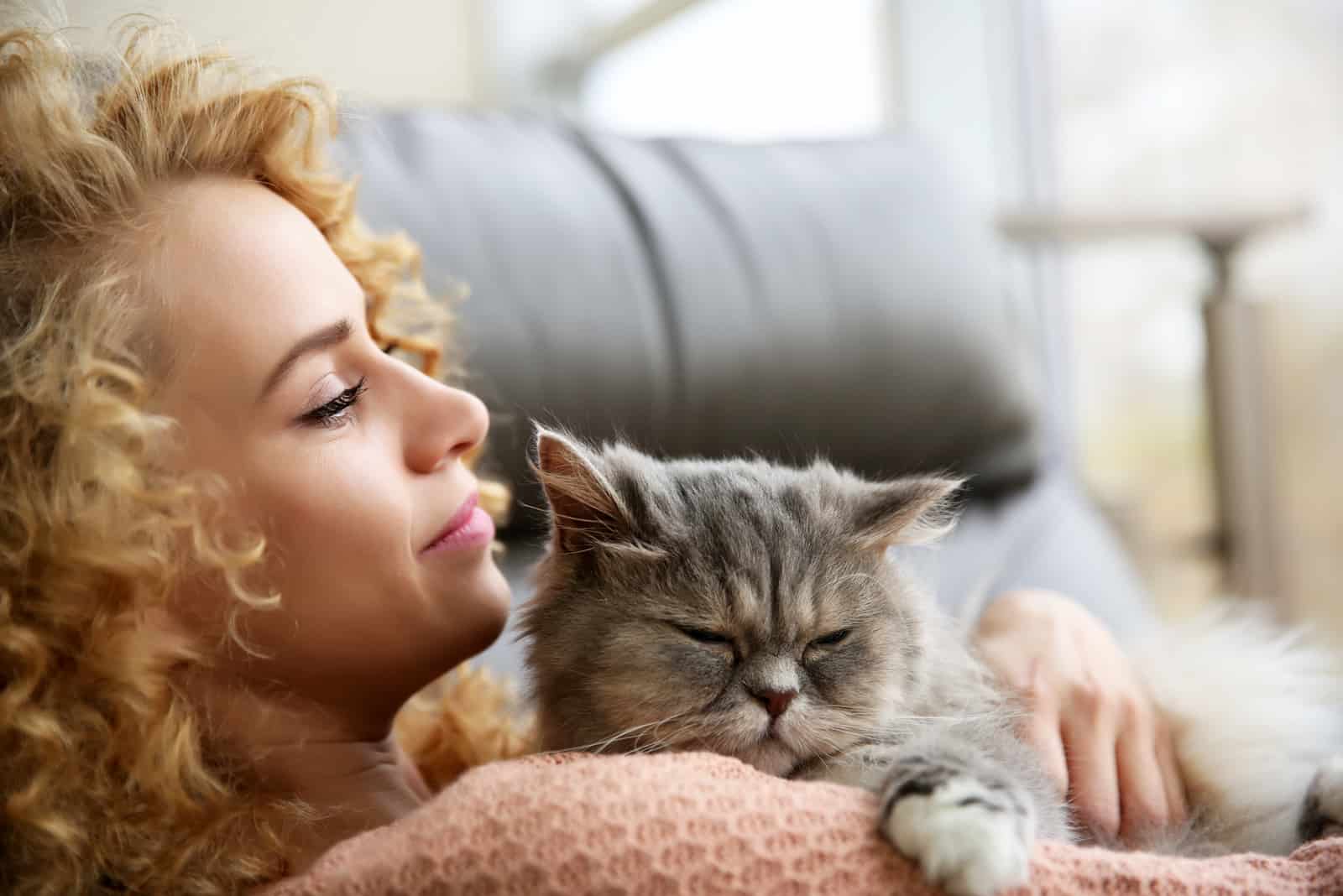
Does A Cat Need To Be Fed By Its Owner To Remember Them?
Cats usually don’t need to be fed by their owner to remember them. Of course, their owners should do most of the cat care, however if the owner is not the only person that feeds the cat, don’t worry, the cat won’t forget them!
Cats recognize their owners for their specific scent and voice, therefore the owner doesn’t have to be the only person feeding the cat in order to be remembered.
Do Cats Forget Their Owners In 3 Days?
Cats have a great memory, so the answer is no, they won’t forget their owners in 3 days. The reason for this is mostly because they perceive you as something positive in their lives that cannot be easily forgotten.
Do Cats Forget Their Owners After A Week?
Cats don’t forget their owners after a week. They may start behaving unusually because you left them for a week, however, that doesn’t mean that they forgot you.
Do Cats Get Sad When You Leave?
Even though cats are independent animals, they may be sad when you leave them, especially if their routine is disrupted. This behavior is stronger in cats who suffer from separation anxiety.
Final Thoughts
Cats are truly fascinating creatures. They may have small bodies, but they have big brains. So, here are some things to keep in mind:
Do cats ever forget you? Sometimes! In rare cases, if you haven’t been good to your pet cats, they may hold grudges, but they forget them quickly. Grudges, not you!
Another important thing is that cats have excellent long-term memory so they remember all the good and bad experiences that impacted them. Therefore, if you put in the effort to satisfy your pet’s needs, you may well become its favorite.
Don’t be disappointed if a little kitten doesn’t remember you. This is because of the cat’s short-term memory. As the cat grows and matures, she starts to remember more things and develops a better memory than the younger ones!
Now you can answer this interesting question “Do Cats Forget Their Owners?” and help other cat owners understand this dilemma!
Related Content
• My Cat Wont Leave Me Alone – 10 Causes And 10 Solutions
• My Cat Is Obsessed With Me: Signs, Reasons & Solutions
• 10 Reasons Why I Love My Cat So Much I Cry + 10 Signs Cat Loves You

